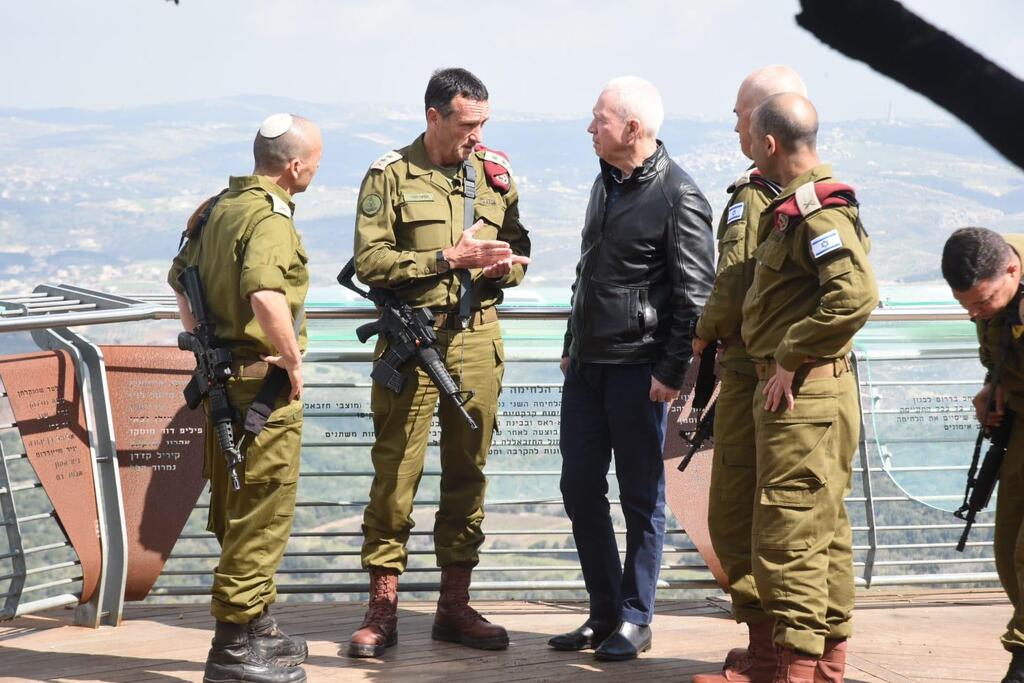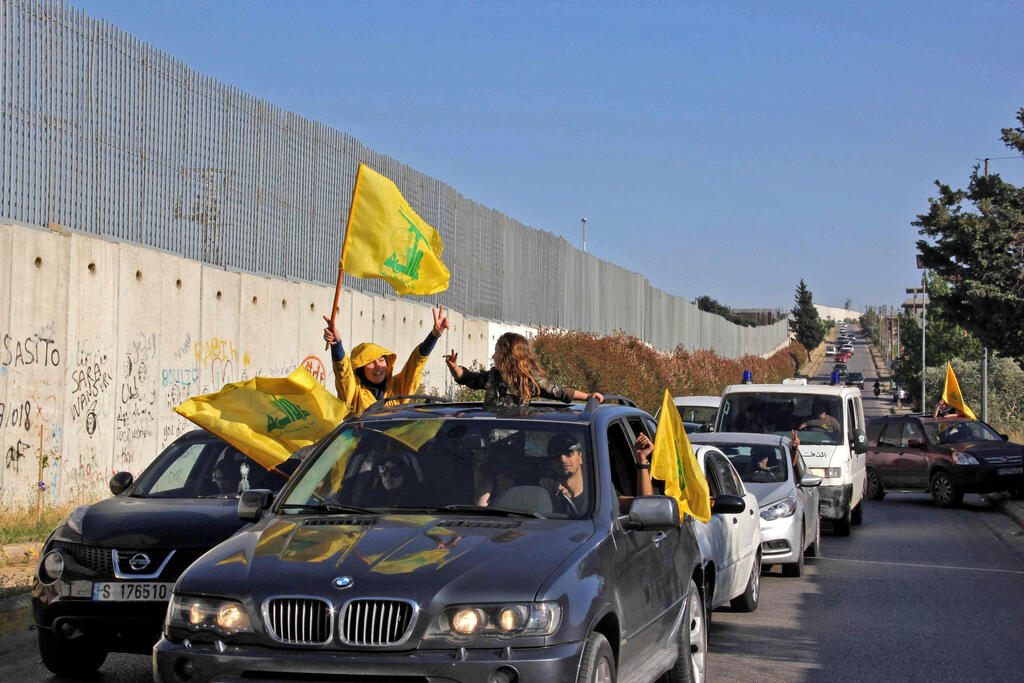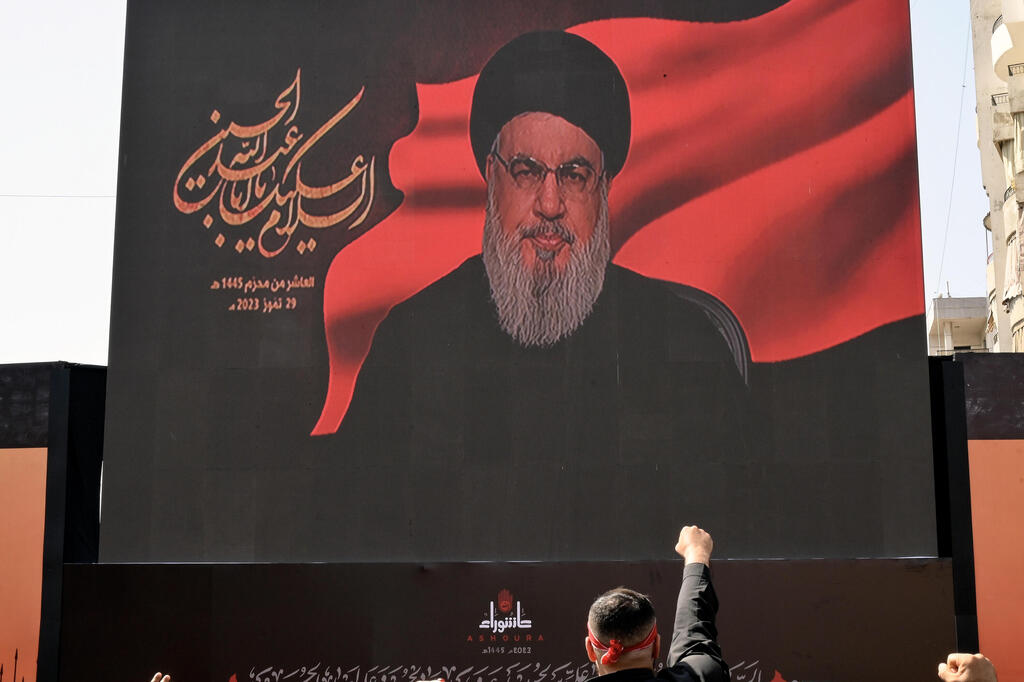Prime Minister Benjamin Netanyahu conducted a security assessment Sunday in response to developments on the northern border, with an emphasis on the escalating tensions with Hezbollah.
Read more:
Unlike the usual warranted discretion in such cases, the discussion itself was announced in advance, and a press release was issued afterward. While it was cryptic and vague, the information reached the media through other channels. Therefore, it is not far-fetched to assume that it wasn’t just targeted at the Israeli public but also the Lebanese citizens who support Hezbollah Secretary-General Hassan Nasrallah.
The unusual attempt at arms smuggling from the Jordan Valley also came up during the meeting. Intelligence officials detailed how efforts are underway to incite terrorism in the West Bank, utilizing combat means and funds earmarked for Islamic Jihad and Hamas.
Nasrallah is changing tactics on the border: he is bolstering his Radwan Force and establishing posts along the fence. Behind him, the Iranians are pressing him to exact a price from Israel following their failed attempt to humiliate the Jewish state. However, Tehran is cautioning Hezbollah against rushing into war, so as not to squander the "second strike" they have prepared in case the IDF attacks Iran's nuclear facilities first.
As a regular consumer of Israeli media, Hezbollah's Secretary-General took the opportunity to warn Israel against taking any foolish action. In other words, during your little security assessment, it would be better not to consider a preemptive strike.
Nasrallah, as usual, knows what he is talking about: in every round of conflict, whether in the north or the south, Israel strives to maintain the element of surprise. Even if such a move is indeed under consideration, despite the publicity of the discussion, discretion would be pivotal. An interesting phrase was included in the statement from the Prime Minister's Office following the discussion, stating that Netanyahu "accepted the recommendations and courses of action proposed by the IDF and the national security establishment".
This can be seen as a vote of confidence in the security echelon amid tensions between Netanyahu and senior military leadership regarding judicial reform legislation. However, it can also easily be interpreted as preparation for shifting blame if the proposed strategies fail to yield the desired results.
So far, the IDF in general and the Northern Command in particular have several missteps to account for: Hezbollah's posts set up on Israeli territory should have been immediately removed by decision direct commanders on the ground. Instead of deterrence fire that would end the matter, it escalated to a diplomatic level, and the time that has passed only further weakened the deterrence.
Another recent incident of Lebanese individuals stealing surveillance cameras from the border barrier is a tactical failure that should have been avoided, and therefore the military is investigating it.
FRANCE AIMS TO PREVENT CONFRONTATION BETWEEN ISRAEL AND HEZBOLLAH
(ILTV)
Despite the sense of escalation, intelligence sources still estimate that Nasrallah is not aiming for a full-scale war. However, for the first time in 17 years, Nasrallah is willing to push the boundaries and test Israel's patience, including potential days of fighting that may get out of control. Therefore, senior IDF officials are telling the prime minister that the likelihood of war has reached its highest level since summer 2006.
Even if war does not break out tomorrow morning, the letters sent from the IDF Intelligence Directorate to the prime minister before the government’s bill to curb some of the Supreme Court’s powers leave no room for doubt: Nasrallah identifies exceptional levels of Israeli weakness, partly due to the domestic coalition crisis and the rift with the Americans. IDF Chief Halevi of course, supports this assessment and made sure to reflect it to the prime minister before and after the legislation, when Netanyahu finally agreed to meet him.
3 View gallery


IDF Chief of Staff Herzi Halevi and Defense Minister Yoav Gallant on the Lebanese border
(Photo: Avihu Shapira)
If all this is not enough, the rift in the reserve forces continues to dominate the military agenda. In the Air Force, squadron commanders continue their efforts to stem the tide. In some cases, it even succeeds, and there are those who declared they would not report for duty but have since recanted.
Alongside this, Tuesday is the opening of the August draft that includes both male and female combat soldiers. Recently, there have been calls from parents not to send their children to combat service, but at the moment these are on the fringes of the discourse. Similar concerns were voiced during the Mars draft cycle but the draft proceeded successfully. The military hopes to replicate this achievement, knowing that the opposite scenario, namely a decline in enlistment due to a significant loss of trust in military service, would inflict severe security and social damage.





